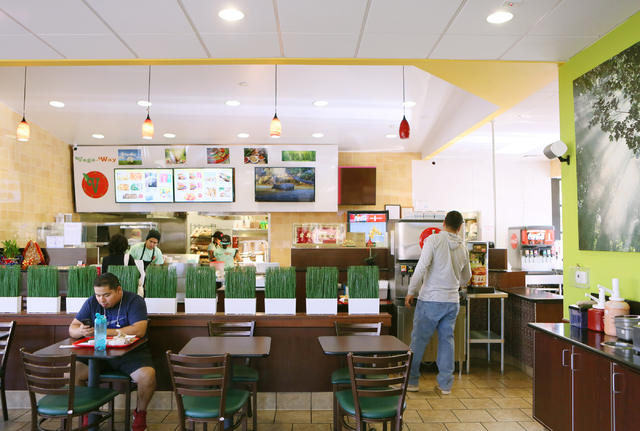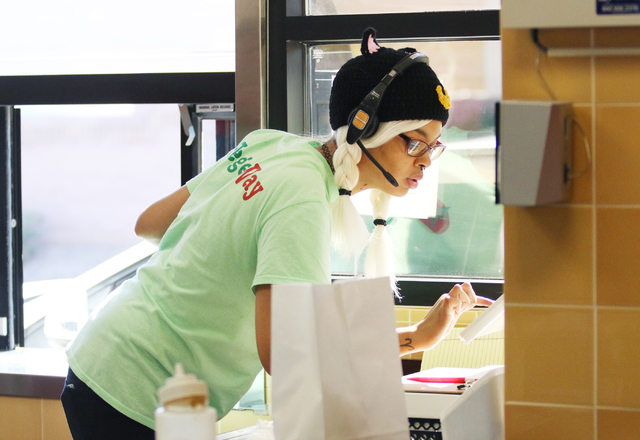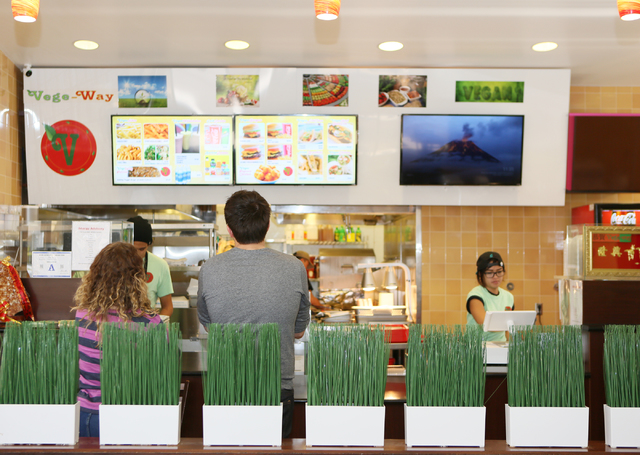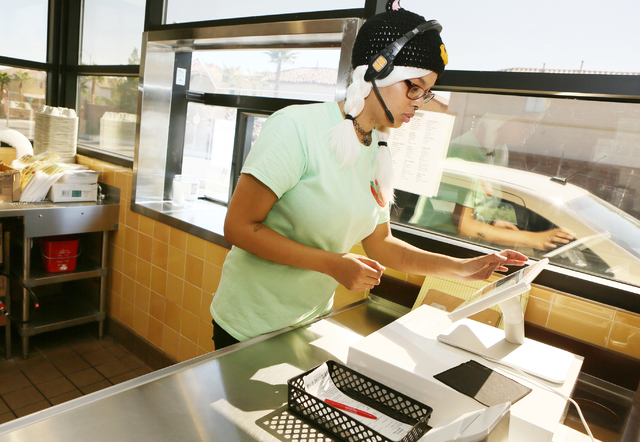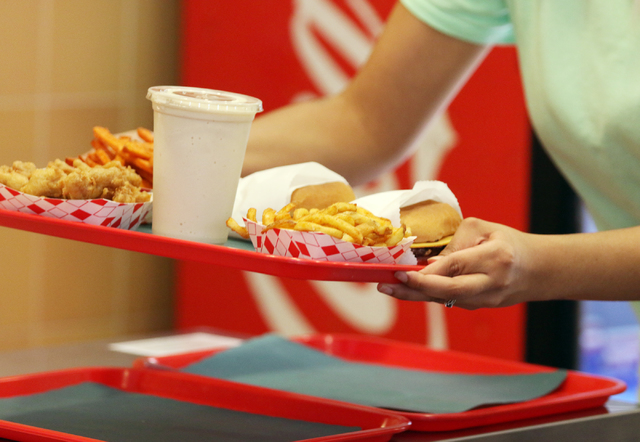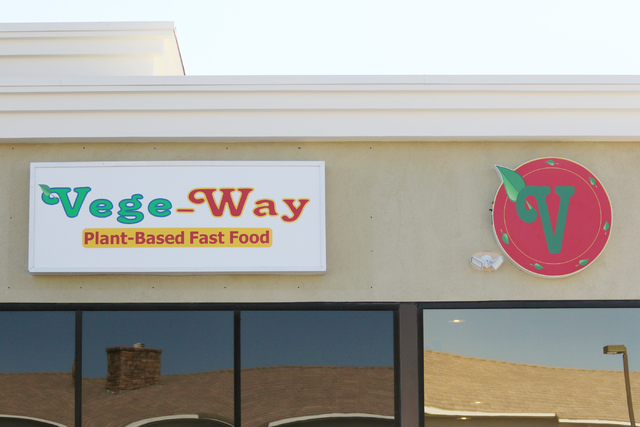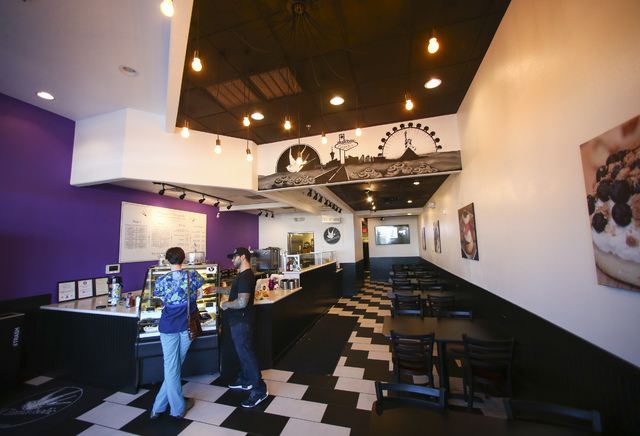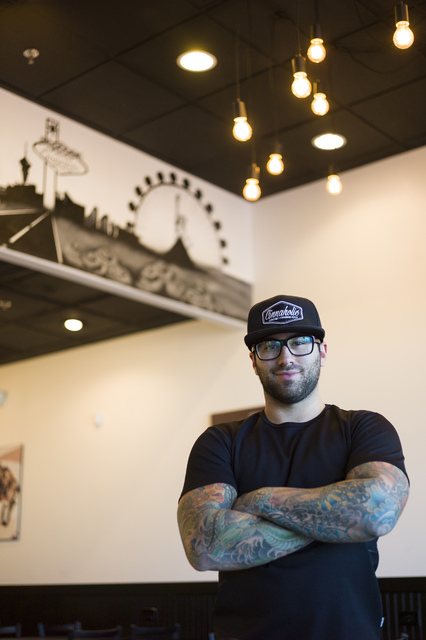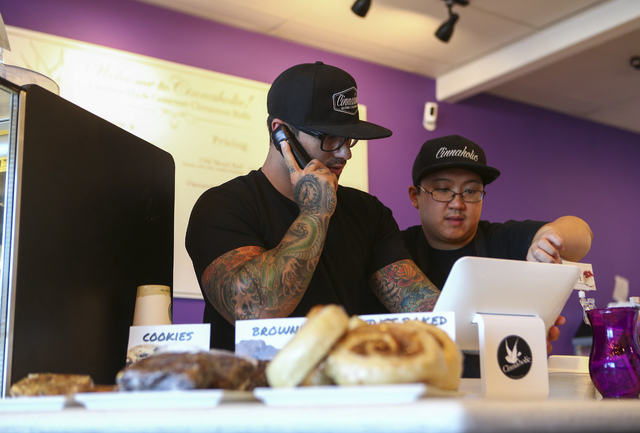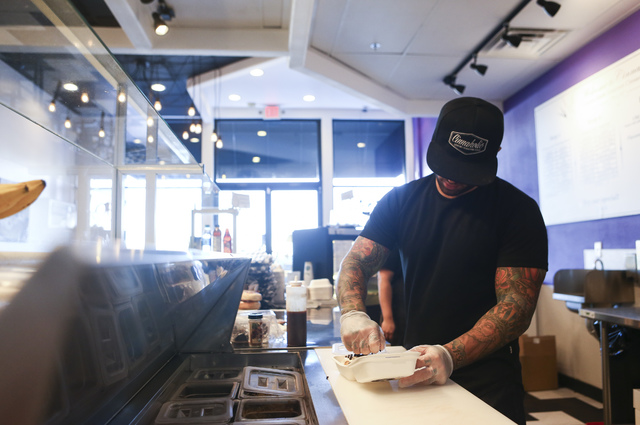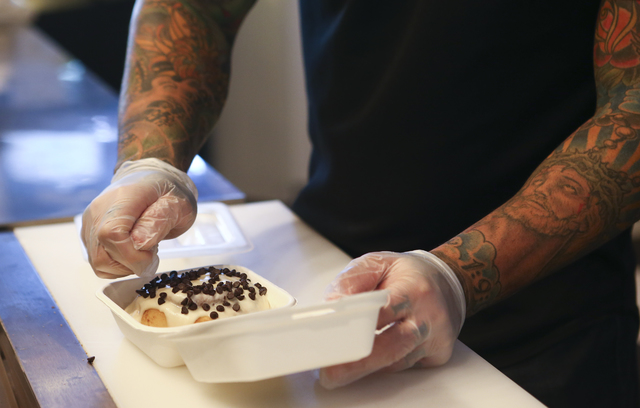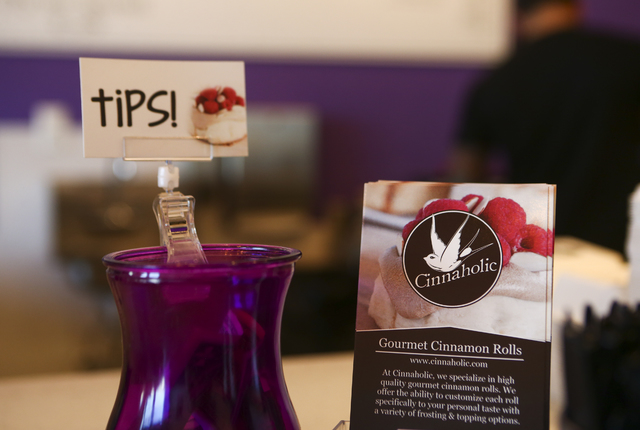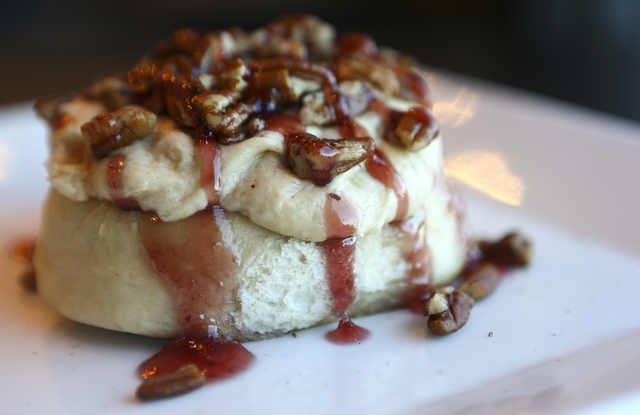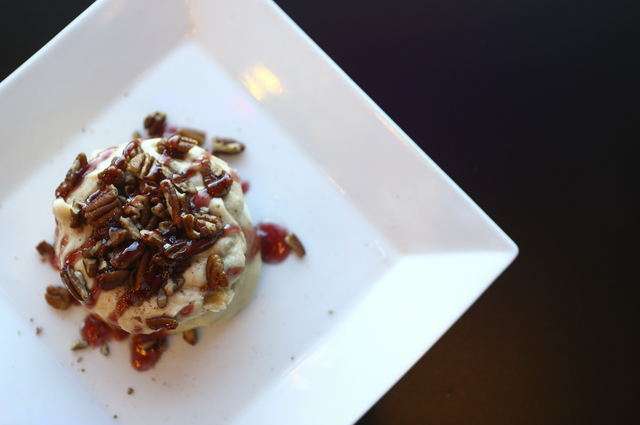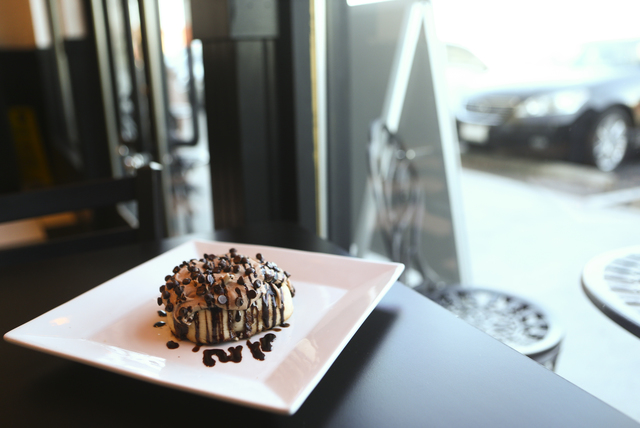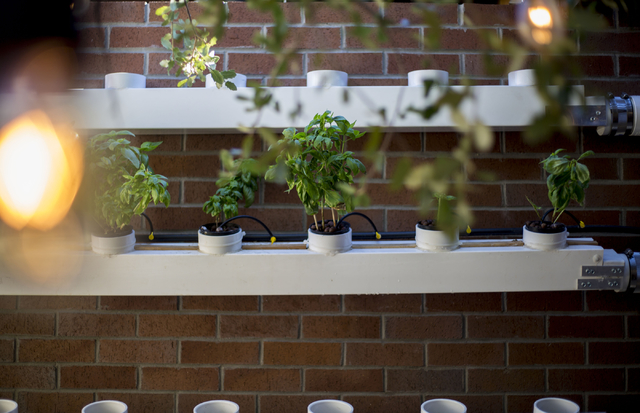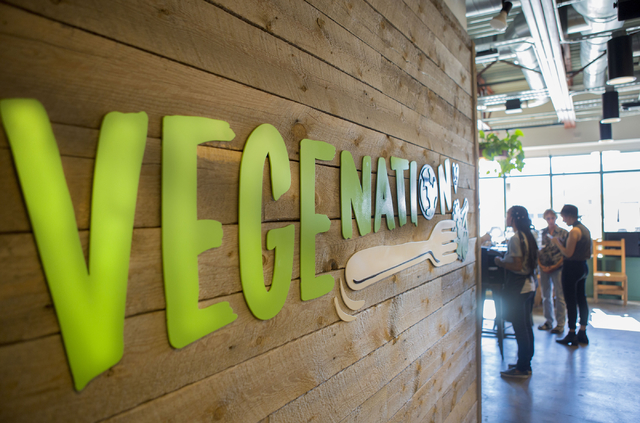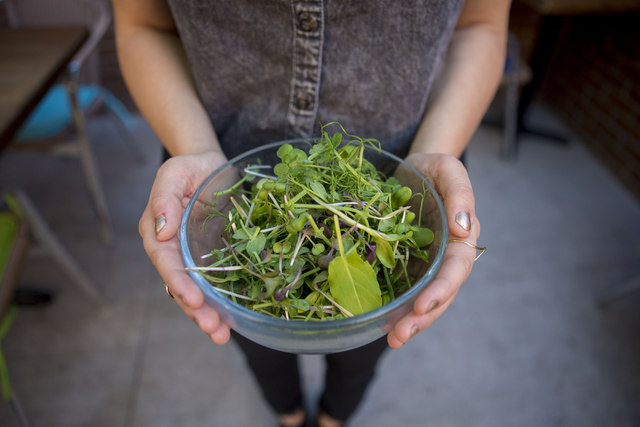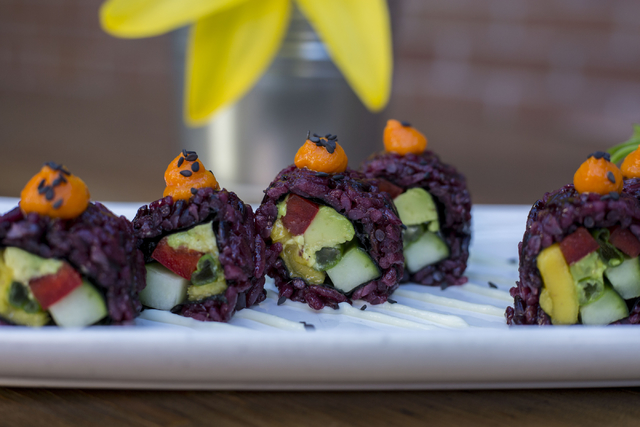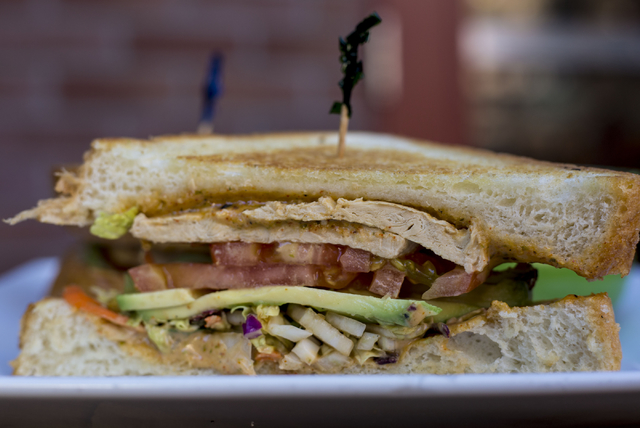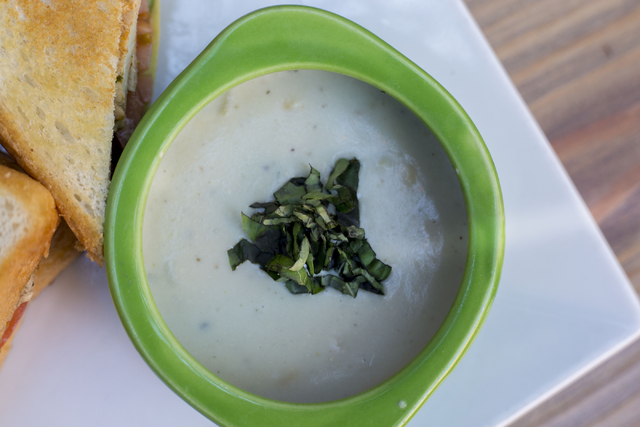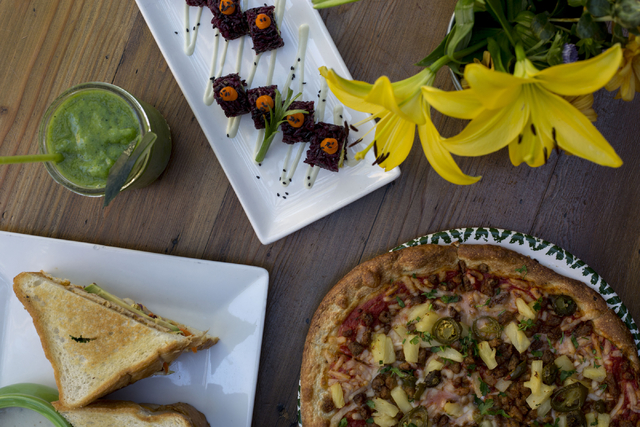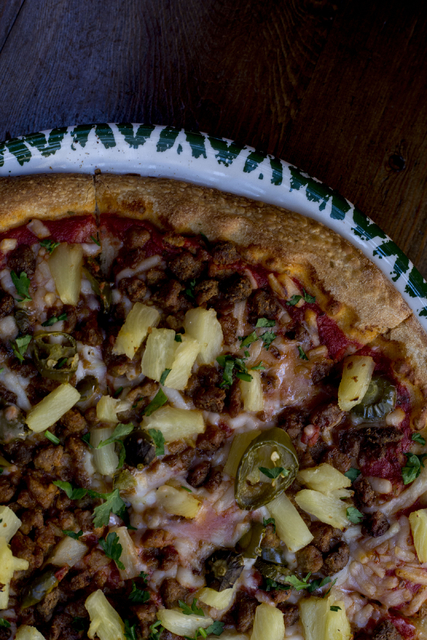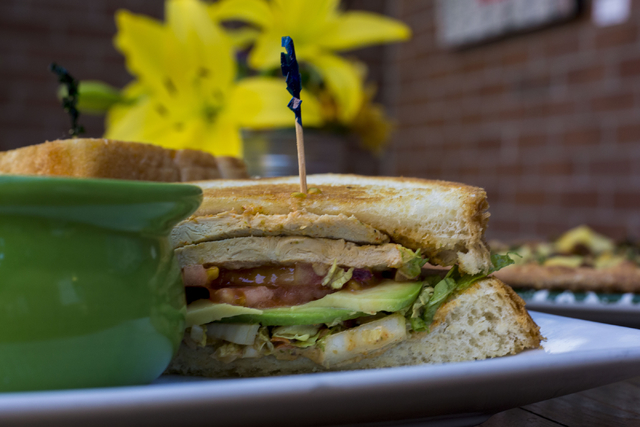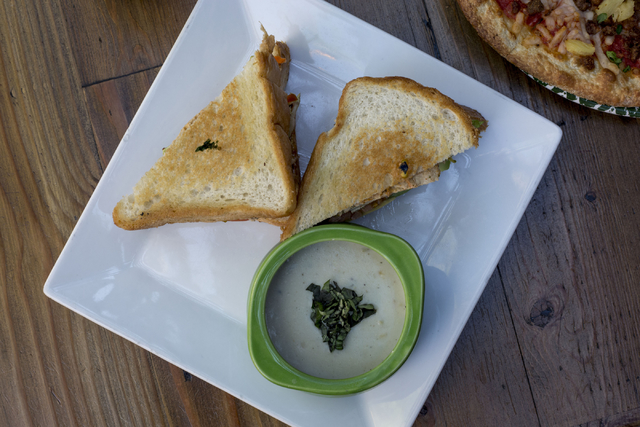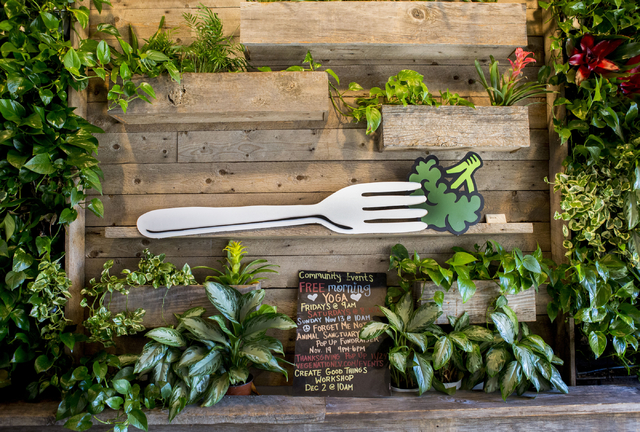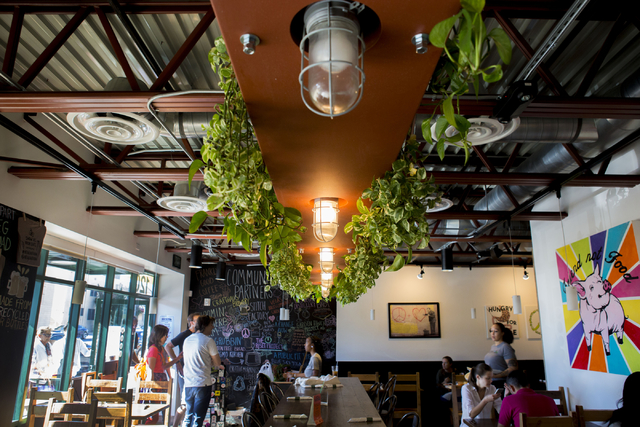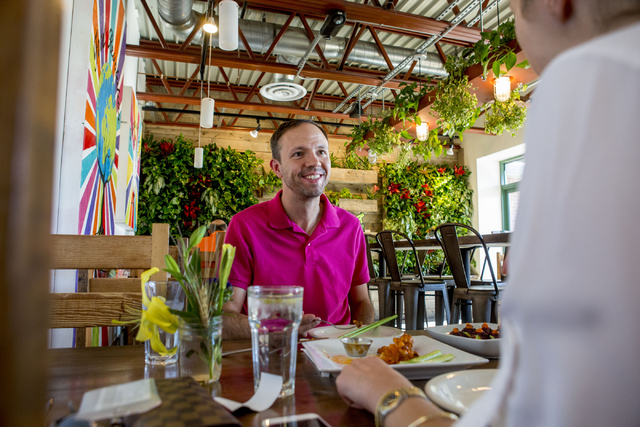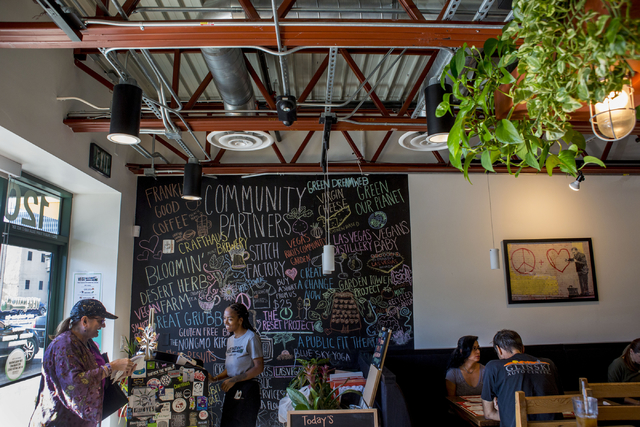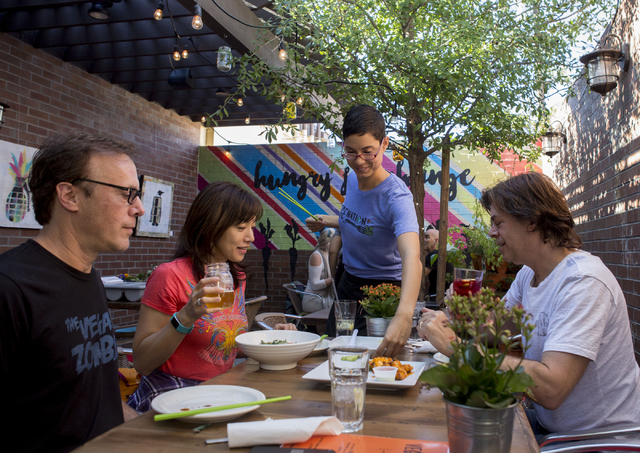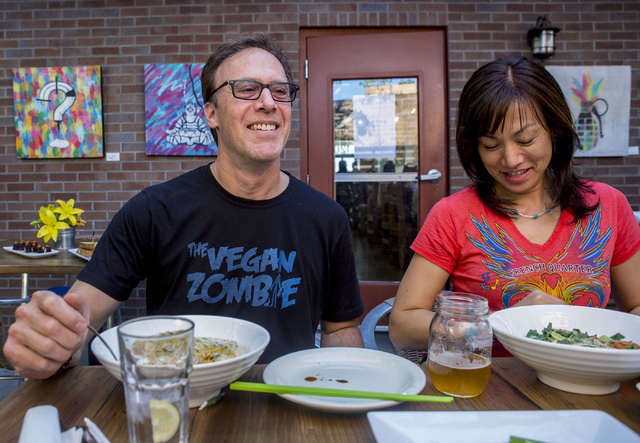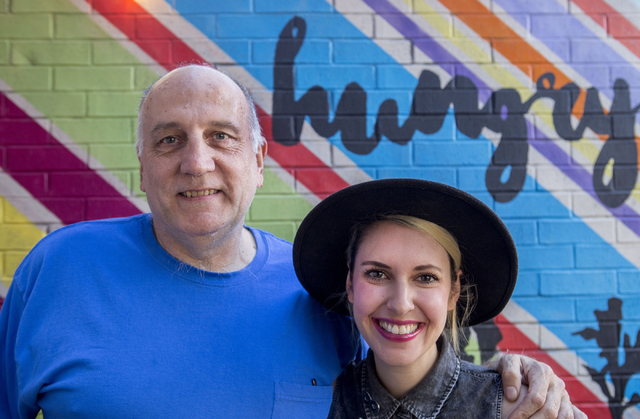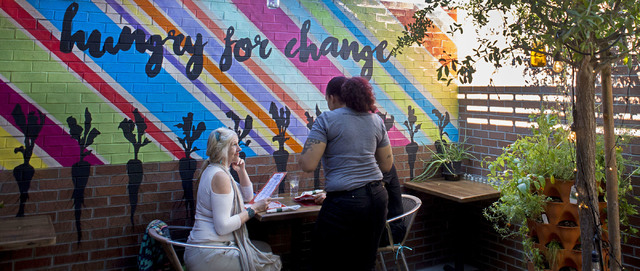Vegan eateries flourishing in Las Vegas Valley
The United States has long ranked among the top meat-eating countries in the world.
But in recent years food trends have shifted toward more plant-based alternatives, and local entrepreneurs are noticing.
In the Las Vegas Valley, there are approximately 10 vegan bakeries and restaurants — including Nevada’s first all-vegan drive-thru.
“The demand for new restaurants is always there because people want to try new things,” said Raj Tumber, business adviser with SCORE Las Vegas, a nonprofit organization that provides guidance to entrepreneurs. “It’s not very hard to sustain a business if you research the area. It all really depends on the location and demographics of that location. As far as competition goes, there are not a whole lot of vegan restaurants in Las Vegas, and there’s definitely a market for it, especially with all of the health-conscious people out there.”
The United States has roughly 3.7 million vegan adults, which accounts for more than 1 percent of the nation’s population, according to a 2016 national poll conducted by Harris Poll, commissioned by the Vegetarian Resource Group, a nonprofit education and advocacy group.
People who follow a vegan diet do not consume any animal products, including meat, fish, milk, cheese and honey.
But data show that herbivores and omnivores alike are also opting to use meat alternatives. A 2013 Mintel study found that while 7 percent of consumers identify as vegetarian, 36 percent indicated the use of meat alternatives.
PLANT-BASED CHOICES
VegeNation opened in downtown in 2014 as part of the Downtown Project after noticing the demand for plant-based meals. The business was founded by chef Donald Lemperle to provide “good food for the good of all.”
Lemperle began his own vegan journey after he was diagnosed with multiple myeloma, a form of bone marrow cancer. He decided to change his lifestyle, and that began with his lunch.
“The risk we faced was seeing if our community, who are not plant-based eaters, were ready to make more plant-based choices, said Kelly Bennett, creative director at VegeNation. “We knew we had to make it mainstream in order for the restaurant to work.”
Bennett said the restaurant sells more than 200 plant-based meals on average and has created more than 40 jobs.
Before moving to Las Vegas, Kenny Chye lived in Southern California, where he was chef-owner of three restaurants.
After he moved to Las Vegas in 2009, the Malaysia native worked for 11 years as a wholesale business supplier for local businesses providing meat, seafood, sauces and other items to hotels and restaurants.
Providing meat led him to eat more meat, which he said raised his cholesterol.
After making a “serious lifestyle change,” Chye said he wanted to “eat good food without the meat,” so he opened Veggie House in Chinatown in 2012. There he worked to create food that smells and tastes like beef, chicken, pork and seafood.
“A lot of people heard about my restaurant through word-of-mouth, and for years and years many of my customers kept saying that they would love to see me create a fast food restaurant with a drive-thru,” Chye said. “Vegans are always looking for something traditional.”
Two years after he heard their initial requests Chye opened VegeWay — the first all-vegan drive-thru in the nation — in southwest Las Vegas.
Chye worked hard to perfect his vegan version of an In-N-Out burger, which he calls simple, delicious and easy to order. Other items include milkshakes made from almond milk, Vietnamese wraps, salads, popcorn chicken and fish tacos.
During his first week Chye said he sold more than 3,000 burgers, and sales have been steady since making the restaurant’s debut in September.
Chye said he has plans to open a second location by early next year in the Centennial Hills or Henderson area and also plans to open a central kitchen where he can provide vegan products to nearby hotels, restaurants and schools.
“My dream is to make vegan fast food line up with the American fast food,” Chye said. “The timing is right because a lot of people are changing their lifestyles and accepting more plant-based foods.”
Others are also recognizing this health trend.
An epiphany
In 2010 casino mogul Steve Wynn had an epiphany. After he was given a copy of a DVD called “Eating,” Wynn was shocked to learn how Western disease can be reversed through dietary changes.
He didn’t stop there.
He gave every one of his employees a copy of the DVD and had his chefs partner with renowned vegan chef Tal Ronnen to create a vegan menu for every single one of his 18 restaurants all in the name of “giving people a choice.”
“The overall importance of the plant-based vegan program at Wynn Las Vegas is that we want to offer the very best menu items for our guests,” said James Benson, the hotel’s executive chef.
“Whether they choose to eat vegan for a lifestyle choice, or as an alternative from time to time, we strive to create dishes through our chefs. … These dishes are of the same caliber of all of the offerings within the restaurants, as we want all of our guests to experience our restaurants as they are meant to be, and taste the cuisine that the restaurant represents.”
GOING MAINSTREAM
Restaurants aren’t the only ones getting into the vegan action.
After surviving the hit ABC TV show “Shark Tank,” Cinnaholic founders Shannon and Florian Radke have found success and rapid growth. After opting to franchise the business, Las Vegans Aliscia Mazza and Marco Albanese decided to bring the custom cinnamon rolls to Summerlin.
Mazza said they don’t market the business as vegan because people associate the word with bland or experimental food, and they want to make sure everyone gives their cinnamon rolls a chance.
“Las Vegas doesn’t have many vegan options, and we knew that the vegan market is very active and growing nonstop,” Albanese said. “Since opening in August business has been great. It’s been steady and people have been really happy with our product.”
They are looking to open a second location in Centennial Hills or Henderson next year.
The global plant-based meat market is projected to reach $5 billion by 2020, according to Markets and Markets, a market research and consulting firm.
Annika Stensson, director of research communications for the National Restaurant Association, believes the trend is linked with health.
“Consumers in general are exploring more vegan food as nutrition trends are evolving toward diet-specific interests,” Stensson said. “In other words, trends are becoming less about what is generally ‘healthy’ and more about what’s ‘healthy to you.’ Meatless options – vegetarian or vegan – have become more popular as consumers look for healthful meals.”
Many people turned their backs on meat after the World Health Organization 2015 report asserted that hot dogs, ham, corned beef, sausages, bacon and other processed meats can cause cancer.
With food giants setting their sights on organic and natural-based companies and restaurants maximizing profits by offering more meatless options, the food trend seems to be moving toward healthier and more natural foods.
Because of the growing demand, the Plant Based Foods Association launched in March to give this sector of the food industry a collective voice. Michele Simon, executive director of the association, said it has 58 company members and growing.
Simon said she is optimistic for the future of the plant-based industry.
“Companies that sell plant-based foods have been around for decades,” Simon said. “However, in recent years we are seeing a wave of the ‘next generation’ of plant-based foods, which are pushing the envelope with higher quality and innovation.
This, combined with increasing consumer interest in eating healthy and sustainable foods, is causing an explosion of growth in the plant-based foods industry. It’s a very exciting time.”
Contact Sandy Lopez at slopez@reviewjournal.com or 702-383-4686. Follow @JournalismSandy on Twitter.
VEGAN BUSINESSES AROUND THE VALLEY
Go Raw Cafe
2381 E. Windmill Lane No. 18
Phone: 702-450-9007
2910 W. Lake East Drive
Phone: 702-254-5382
Go Vegan Cafe
5875 S. Rainbow Blvd. No. 104
Phone: 702-405-8550
Simply Pure
707 Fremont St.
Phone: 702-810-5641
Rainbow's End Café
1100 E Sahara Ave. No. 120
Phone: 702-737-1338
VegeNation
616 E. Carson Ave. No. 120
Phone: 702-366-8515
Violette's Vegan Organic Eatery
560 W. Desert Inn Road
Phone: 702-685-0466
Veggie House
115 Spring Mountain Road
Phone: 702-431-5802
VegeWay
790 S. Jones Blvd.
Phone: 702-614-3380
Vegan Bites
8876 S. Eastern Ave. No. 101
Phone: 702-487-3111
Cinnaholic
4165 S. Grand Canyon Drive No. 103
Phone: 702-248-0244




